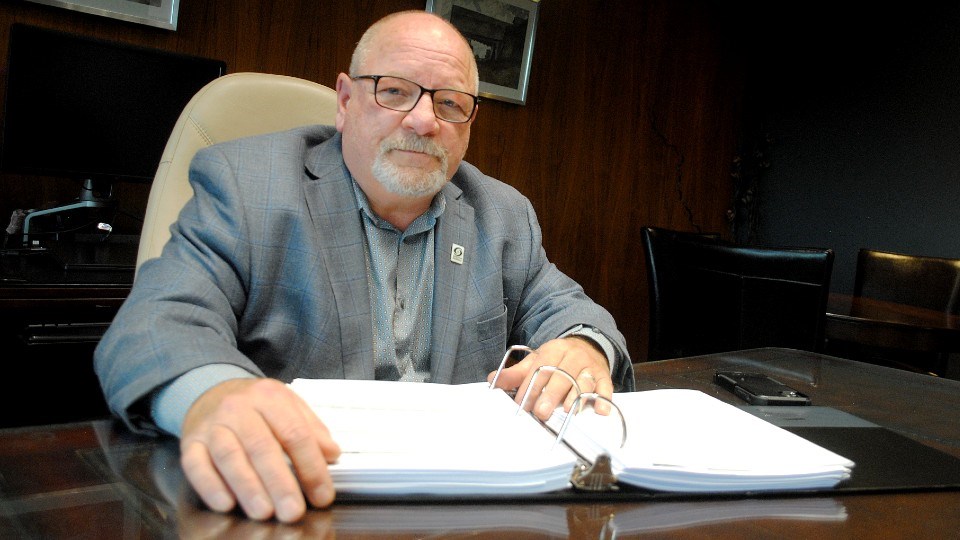During these “exceptionally challenging times,” Mayor Brian Bigger told Sudbury.com that it’s essential the city notches a minimal tax increase in 2022.
“Ensuring we keep our budget as tight as possible is a prudent thing to do this year because of our COVID-19 experience,” he said, adding that although the city has managed to handle millions in unplanned, unexpected pandemic-related costs thus far, it’s an ongoing challenge.
“Three per cent is what I’m targeting,” Bigger said. “I’d be more than happy working with staff, council and the community to find reasonable ways to achieve that tax increase in these difficult times.”
Earlier this month, city administration proposed a 4.7-per-cent tax increase for 2022, which includes a 3.2-per-cent property tax increase and a special capital levy of 1.5 per cent.
City council had requested a proposed tax increase no greater than three per cent, however, the Greater Sudbury Police Service budget came in at $500,000 more than previously estimated last month, which bumped the overall increase to 3.2 per cent.
“At this point, everything is a proposed budget being presented to council for us to evaluate,” Bigger said. “We haven’t made any final decisions on anything yet, and we’ve only just received the budget document, so in a collaborative way and also taking into account input from the public we will arrive at our final budget for 2022.”
If Bigger has his druthers as one of 13 votes around council chambers, the 1.5-per-cent increase to accommodate a special capital levy increase will not be adopted this year.
As for the wealth of business cases the city’s elected officials are expected to debate that would push the tax increase beyond the 3.2 per cent currently proposed, Bigger said most of them will be tough sells.
“What I’m looking for are business cases that show a positive payback, as in long-term reduction in operating costs in making us more efficient,” he said, adding that he’ll also lend special attention to those business cases that tie into the city’s goal of reaching their goal of reaching net-zero carbon emissions by 2050.
Supporting the city’s downtown core is also a priority, he said.
“It’s easy for everyone to see the challenges that businesses are experiencing in our downtown, and so I’m leaning to support business cases that support our downtown core and so I’ll also be looking at those business cases.”
Once such business case is a motion from Ward 4 Coun. Geoff McCausland that would see downtown parking become free on weekdays an hour earlier than present, at 5 p.m. A business case is also being developed to make the downtown security pilot program permanent.
Alongside the many business cases competing for inclusion in the 2022 budget are the city’s countless infrastructure needs, with city administration clarifying in a report earlier this year that city assets are currently underfunded by approximately $100 million per year.
These needs have also contributed to withdrawals from the city’s reserves in recent years, which currently lag behind the average among Ontario municipalities, but have remained around the $156-million mark throughout this and the previous city council’s mandate.
In the event that the city ends 2021 with a surplus of $3.8 million currently projected, Bigger said it should go into reserves, as per existing city policy.
It’s difficult to tell what the Delta variant might bring, he said, adding that between the pandemic and its impact on homelessness, mental health, addictions and the uncertainty surrounding Laurentian University, some financial wiggle room might go a long way.
Although the city’s infrastructure remains an underfunded challenge, Bigger said the city has been working on it during the past several years and has been making gradual headway.
The capital budget in 2015 was $110 million, and this year’s capital budget has been proposed at $197.8 million.
Despite this boost, Bigger said the capital funding still needs to be much greater, but now’s not the time to tax residents for it. Further, he noted that the three-per-cent increase he wants to see is in keeping with the city’s long-term financial plan, which forecast a 3.1 per cent increase in 2022.
Public feedback on the city’s 2022 budget can be submitted online at overtoyou.greatersudbury.ca/budget2022, where city administration’s proposed budget is also available.
The city’s elected officials are scheduled to engage in budget deliberations from Nov. 29 to Dec. 1 and the city’s 2022 operating and capital budget is expected to be approve don Dec. 14.
Tyler Clarke covers city hall and political affairs for Sudbury.com.
